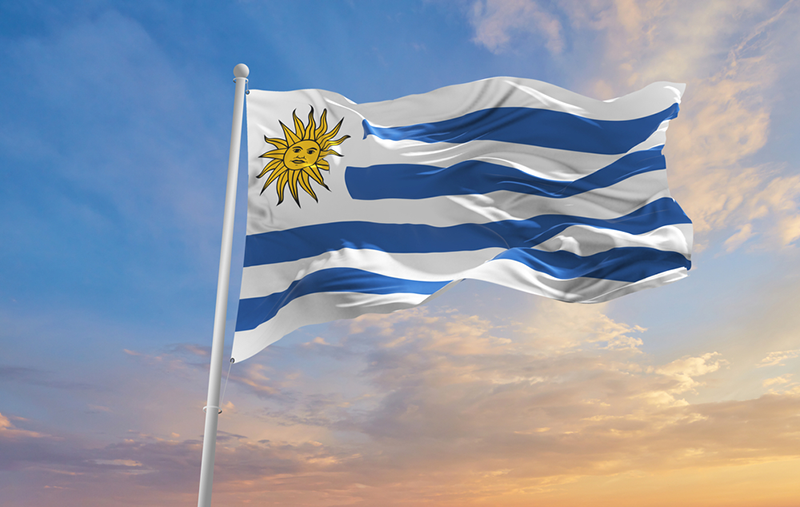Corporate Accounting & Taxation in Brazil: Guide for Global Businesses
Brazil is Latin America’s largest economy and an increasingly strategic destination for global businesses seeking growth in the region. For...

Colombia is the third most populous country in Latin America, with a population exceeding 50 million inhabitants. The population is relatively young, with a median age of approximately 31 years, which creates a dynamic workforce and a growing consumer base. Urbanization is high, with major cities like Bogotá, Medellín, and Cali serving as key business hubs. These demographics are a consideration for companies looking to start a business in Colombia, as they provide access to both talent and market demand.
Contents of this blog:
Challenges of expanding | Opportunities | Corporate taxes | Colombian Industry | Colombian Economy | Business Entity Structures | Business Culture
Colombia presents exciting opportunities for business expansion, supported by a growing economy and strategic location. As with any new market, there are important aspects to consider. Understanding the local legal and regulatory frameworks is essential, as is adapting to cultural nuances to build strong business relationships. With the right preparation and local partnerships, these factors can be effectively managed to support long-term success. We break down the key International Business Compliance Obligations to help companies stay compliant across multiple jurisdictions.”
Opening a business in Colombia involves navigating a bureaucratic system that can be lengthy. The process includes registration with various government entities, such as the Chamber of Commerce, the DIAN (for its acronym in Spanish, National Tax and Customs Directorate), and social security entities. While recent reforms seek to simplify these procedures, regulatory complexity remains a significant challenge. Working with local advisors is strongly recommended to ensure compliance with all regulations.
Strict Labor Laws & High Employee Costs
The country has strict regulations regarding employment contracts, minimum wage, working hours, and termination processes. In addition to wages, employers are required to contribute to social security, health insurance, and severance funds. These costs must be carefully factored into any business expansion strategy.
Colombia has made significant progress in modernizing its infrastructure, including major investments in highways, ports, airports, and rail systems through programs such as “4G Road Infrastructure” and “Plan Maestro Ferroviario”. These initiatives aim to improve connectivity between major cities and boost trade efficiency across the country and with international markets.
-1.webp?width=218&height=580&name=db-colombia-31%20(1)-1.webp)
Colombia offers numerous business opportunities, especially in sectors like technology, agriculture, tourism, and renewable energy. With its growing economy, strategic location, and government incentives, Colombia is an attractive destination for foreign investors.
Colombia is situated in the northwest of South America and is unique in being the only country on the continent with coastlines along both the Pacific Ocean and the Caribbean Sea. This geographical advantage establishes it as a key gateway for international trade. Important economic centers include Bogotá, the capital; Medellín, which is renowned for its innovation; and Barranquilla, a significant port city. This strategic location enhances export activities and facilitates regional distribution.
Colombia presents competitive labor costs and affordable real estate compared to many other Latin American countries. These advantages make it a cost-effective location for businesses, particularly in manufacturing, business process outsourcing (BPO), and logistics. Companies seeking to reduce expenses while remaining close to the U.S. and Latin American markets often view establishing operations in Colombia as a strategic decision.
Colombia's expanding middle class and rising internet penetration are changing the consumer landscape. E-commerce, financial services, and digital entertainment are all experiencing growth. For foreign companies looking to launch products or services, understanding local consumer behavior is essential. Starting a business in Colombia can provide access to a vibrant and evolving market with substantial growth potential.
Colombia boasts one of the most stable and diverse economies in Latin America. By 2025, its GDP is projected to surpass USD 330 billion, supported by key sectors such as services (including finance and telecommunications), manufacturing, agriculture, and mining. While inflation and exchange rate volatility remain concerns, the Central Bank of Colombia is proactive in managing monetary policy to ensure economic stability.
Colombia follows an inflation targeting regime, currently around 5,15% and expected to reach 3% by the end of 2025. To control inflation and stabilize the Colombian peso, the Bank of the Republic adjusts interest rates. In March 2025, the Consumer Price Index (CPI) in Colombia reached 148.68 points. This reflects a monthly increase of 0.52% and an annual growth of 5.09%. When compared to the same period last year, this marks a decrease of 2.27 percentage points, as the CPI was 7.36% at that time.
Expanding into Colombia presents both opportunities and challenges, but H&CO offers simple solutions to help businesses mitigate risks, ensure compliance, and achieve long-term success in the region.
We provide expert local insights, comprehensive market research, and strategic business development solutions to help you establish a strong presence and successfully expand your business operations in Colombia. Discover how opening your business abroad plays a key role in successful cross-border expansion.
Build a high-performing and fully compliant workforce with our recruitment services, workforce management solutions, and HR compliance support tailored to the unique labor laws in Colombia.
Optimize your business operations with SAP Business One, a powerful ERP solution designed for small and medium-sized enterprises. Our team provides seamless implementation, customization, training, and ongoing support to enhance efficiency and streamline processes.
Keep your finances on track with our outsourced accounting, bookkeeping, and ERP solutions, including SAP Business One and other leading platforms, designed to enhance financial organization and operational efficiency.
We provide full payroll management, including accurate payroll processing, social security contributions, and administration of mandatory employee benefits, ensuring compliance with Colombian labor laws while preventing costly disputes.
Our experienced tax specialists offer tailored tax solutions to minimize liabilities, manage VAT obligations, and ensure full compliance with Colombian transfer pricing regulations, helping you reduce tax burdens and maximize profitability.
Companies are subject to Income Tax, which is levied on their worldwide income at a general rate of 35%. Additionally, there is the Industry and Commerce Tax (ICA)—a local tax imposed by municipalities on gross income generated from commercial, industrial, or service activities.
When a third party withholds this tax at the source, it is referred to as RETEICA. Another important obligation is withholding tax (retención en la fuente), a mechanism through which the government ensures the advance collection of taxes by requiring payers to withhold a percentage of payments made to suppliers or contractors.
-1.webp?width=274&height=613&name=db-colombia-28%20(1)-1.webp)
Population: 53.43 million inhabitants
Language: Spanish
Currency: Colombian Peso (COL)
GDP per capita: USD 6,947.4 (2023)
Political System: Colombia is a democratic, unitary presidential republic, characterized by a separation of powers among the executive, legislative, and judicial branches. The president serves as both the head of state and the head of government, as well as the commander of the Armed Forces. The Congress of the Republic consists of two chambers: the Senate and the House of Representatives.
Tax Treaties: Colombia has signed several Double Taxation Agreements (DTAs) to facilitate international investment and reduce cross-border tax burdens. It currently has tax treaties in force with countries such as Spain, Chile, Mexico, Canada, Switzerland, South Korea, Japan, India, the United Kingdom, and the Andean Community.
These treaties cover income and capital tax aspects and generally reduce withholding rates for interest, dividends, and royalties.
Interesting fact: Colombia is the second most biodiverse country in the world, after Brazil, and #1 in bird species. This natural wealth has made Colombia not only a hotspot for ecotourism but also a growing leader in sustainable agriculture and bioeconomy, sectors prioritized in the 2023–2026 National Development Plan.
Colombia is Latin America's fourth-largest economy and one of the most stable in the region. Over the past decade, it has shown consistent GDP growth, supported by a diversified economic base. Key sectors driving the economy include oil and mining, agriculture (notably coffee, bananas, and flowers), manufacturing, and an expanding services industry—particularly in finance, IT, and tourism. For more details on trade documentation and local regulations, see our full guide on Requirements for Exporting in Latin America.
A few years ago, the government implemented a series of reforms to encourage entrepreneurship, improve transparency, and attract foreign direct investment (FDI). As a result, Colombia has steadily risen in the World Bank's ease of doing business rankings and has received excellent credit ratings from international agencies.
The mining and energy sector in Colombia is at a pivotal moment, as national and sectoral policies are geared toward developing strategies and actions that will allow for a Just Energy Transition (TEJ). This means that the national government is working to transform the energy mix to reduce dependence on oil and gas, mitigating the negative impacts these activities have on the environment and advancing toward a productive transformation that maintains a community and territorial focus.
Just Energy Transition demands a strategic diversification of labor and production, which is essential for developing robust supply chains and enhancing installed capacity in alignment with the opportunities presented by new energy sources. This diversification will directly facilitate the establishment of agricultural, industrial, and eco-tourism alternatives in regions where traditional economies have become unsustainable. Invest in training and qualifications to empower individuals to realign their productive activities. Furthermore, understanding the critical importance of this transition within a framework that prioritizes life and respects nature is non-negotiable.
Agriculture in Colombia is diverse and influenced by factors such as geographic location, climate, and local culture. The main crops grown in Colombia include bananas, coffee, sugar, floriculture, and plantains. However, the agricultural sector in Colombia also faces various challenges, such as the lack of access to modern technologies, the scarcity of natural resources, and the impact of climate change.
The services sector accounts for over 60% of GDP. Bogotá serves as the financial hub, hosting most national and multinational banks, insurance companies, and FinTech startups.
The Colombian government is concentrating on social and tax reforms, sustainable development, and addressing inequality. The National Development Plan for 2023–2026 emphasizes digital transformation, green energy, and rural development to promote long-term growth.
Colombia is one of the leading recipients of FDI in South America. Major investment destinations include Bogotá, Medellín, and the Caribbean region, with a focus on energy, infrastructure, real estate, and technology.
Some incentives that the country proposes are legal stability agreements, government-backed investment promotion via ProColombia, and free Trade Zones (FTZs) offering preferential tax regimes.
Colombia has established a network of 17 Free Trade Agreements (FTAs) with various countries and regional blocs, facilitating trade and investment. Notable agreements include those with the United States, Canada, the European Union, Mexico, Chile, and the Pacific Alliance. These FTAs aim to eliminate tariffs, remove trade barriers, and promote economic integration.
For instance, the U.S.–Colombia Trade Promotion Agreement, effective since May 15, 2012, has significantly enhanced bilateral trade by eliminating tariffs and improving market access for goods and services. Learn how New Tariffs are Transforming Global Expansion and what it means for companies operating in Colombia
Colombia offers specific visa categories to attract foreign investors:
Colombia has developed a robust legal framework to protect and promote foreign investment. The country adheres to international standards of investor protection and offers equal treatment to both local and foreign investors under Law 9 of 1991 and Law 963 of 2005. These laws guarantee free movement of capital, profits, and dividends, as well as legal stability for long-term investments through special agreements known as legal stability contracts.
Colombia has a well-regulated and modern banking system, supervised by the Superintendencia Financiera de Colombia (SFC). The financial sector plays a critical role in the country’s economic growth and offers a wide range of services for both individuals and businesses, including checking and savings accounts, international transfers, investment products, and commercial credit.
The Central Bank, known as Banco de la República, manages the country’s monetary policy, controls inflation, and regulates currency exchange. Foreign investors and companies can freely remit profits, capital, and dividends if their investments are properly registered with the Central Bank.
Foreign companies can establish a presence in Colombia through several legal structures, including subsidiaries, branches, or representative offices. Branches are commonly used for direct operations and must be registered with the local chamber of commerce and DIAN. They are treated as extensions of the parent company and are subject to local tax obligations.
When starting a business in Colombia, investors can select from various types of legal entities based on their objectives, the nature of their operations, and considerations regarding liability. Below is a summary of the most common structures.
Selecting the right legal entity is a key strategic decision that depends on the scale of investment, the type of activity, and the long-term vision for doing business in Colombia.
-1.webp?width=221&height=588&name=db-colombia-29%20(1)-1.webp)
In their relationship code, meetings usually begin with a friendly conversation; topics such as family, culture, or sports are safe and even encouraged before discussing business matters.
The corporate attire is generally formal and conservative, especially in large cities like Bogotá, Medellín, and Cali, where most corporate headquarters are based. Business professionals are expected to present a polished and elegant appearance, as it reflects seriousness, respect, and credibility in negotiations and daily interactions.
Offices typically operate Monday through Friday, from 8:00 a.m. to 6:00 p.m., while lunch hours are typically from 12:00 p.m. to 2:00 p.m. Government offices, however, may have slightly different hours.
Colombia's business norms vary by region. Bogotá has a formal environment, while Medellín and Barranquilla are more relaxed and entrepreneurial.
Colombia's multilingual population is growing, but Spanish remains the dominant language of business. It is advisable to conduct meetings in Spanish or have professional interpreters available, particularly when dealing with government authorities or smaller companies.
In Colombian business culture, communication tends to be formal, especially during initial meetings. Titles and last names are used as a sign of respect, and Spanish is the primary language for most business interactions, although English is increasingly common in multinational environments.
Bogotá is known for its TransMilenio rapid bus system, while Medellín boasts an efficient Metro network. Ride-hailing apps such as Uber, DiDi, and Cabify are popular and considered safer alternatives to traditional taxis. Domestic air travel is frequent and affordable, with airlines like Avianca and LATAM Colombia connecting major cities.
In the Colombian capital, Zona G and Zona T are known for their high-quality cuisine, ideal for executive meetings. The El Poblado neighborhood, especially the Provenza area, is the culinary epicenter of Medellín, offering ideal options for business meetings.
In Bogotá, top business hotels include the Four Seasons Hotel Casa Medina, renowned for its elegant meeting rooms and personalized services, and the JW Marriott Bogotá, located in the financial heart of the city with state-of-the-art conference facilities.
In Medellín, the Hotel InterContinental offers business amenities and relaxation areas, while the Click Clack Hotel is ideal for creative professionals seeking a stylish atmosphere near El Poblado.
Colombia's top cities provide a variety of flexible office and coworking space options for those in need. For instance, WeWork has locations in Bogotá, Medellín, and other major cities, offering flexible office spaces, private meeting rooms, and virtual office services in prime areas such as Calle 93 and El Poblado.
The U.S. Embassy in Bogotá is one of the largest diplomatic missions globally, offering services for American citizens and businesses, including passport assistance, notarial services, and commercial advisory support.
Visit https://co.usembassy.gov/
Other important embassies located in Bogotá include the Embassy of Canada, the Embassy of the United Kingdom, the Embassy of Germany, and the Embassy of Spain, each providing consular assistance, visa services, and commercial support for companies and entrepreneurs looking to engage in Colombian markets.
Business travelers are strongly advised to register with their respective embassies when visiting Colombia for extended stays or important negotiations. For more information, you can consult https://www.cancilleria.gov.co/en/services/consular/directory

Brazil is Latin America’s largest economy and an increasingly strategic destination for global businesses seeking growth in the region. For...

Doing business in Brazil offers significant opportunities, but navigating the country's complex business regulations requires careful planning, its...

Doing business in Uruguay represents a strategic opportunity for companies and entrepreneurs seeking to expand in Latin America and connect with the...